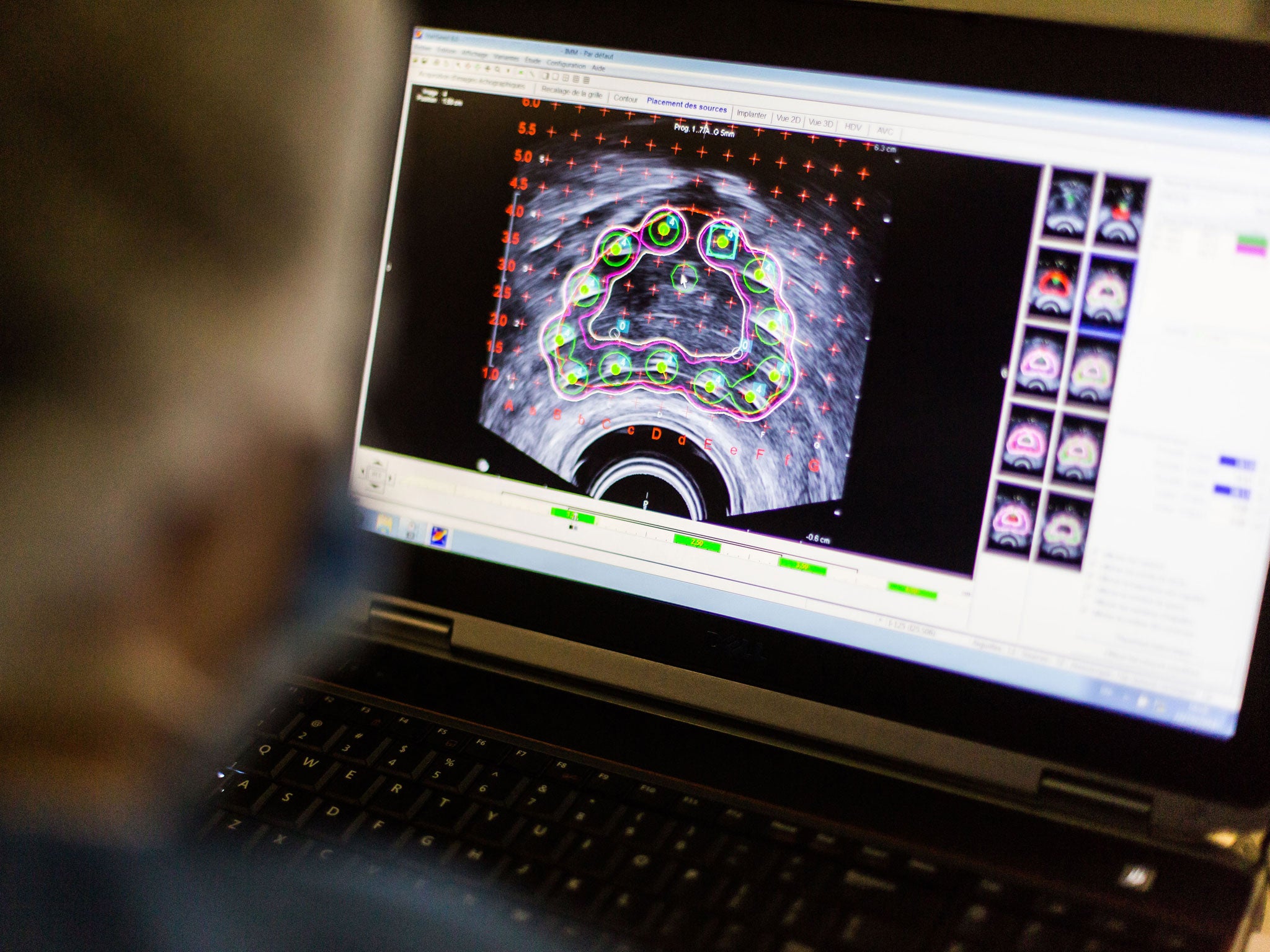The Independent's journalism is supported by our readers. When you purchase through links on our site, we may earn commission.
Prostate cancer saliva test could identify men more likely to contract killer disease
Spit test being trialled in GP practices can find men whose inherited genetics mean their odds of developing prostate cancer are nearly 50/50

A saliva swab could help quickly identify the men most at risk of prostate cancer after UK researchers tracked down a host of genetic changes that make the disease up to four times more likely.
The spit test is currently undergoing trials across three London GP surgeries, initially involving 300 men, to see if the DNA changes they have identified reliably map to actual cancer cases.
Prostate cancer is the most common form of cancer among men in developed countries. As much as 50 per cent of the disease risk is thought to be inherited through genes – rather than caused by diet or exercise.
By studying the genetic information of 140,000 men, including 80,000 who had prostate cancer, researchers at the Institute of Cancer Research (ICR) in London and Cambridge University identified 63 new genetic changes that increase this risk.
Added to roughly 100 genes that were already known to be linked to the disease the research, published today in the journal Nature Genetics, is big enough to move from the lab to the clinic.
Roughly one in eight men in the UK will be diagnosed with prostate cancer in their lifetime. Men with most of these genetic changes have closer to a 50/50 chance.
Identifying these at-risk men would allow them to be prioritised for more regular screening to help catch the cancer earlier, or to make lifestyle changes to minimise their risk.
It could also prevent men at lower risk from having invasive biopsies unnecessarily, which could save NHS time and money, and lower complications for patients.
“We have uncovered vital new information about the genetic factors that can predispose someone to prostate cancer, and, crucially, we have shown that information from more than 150 genetic variants can now be combined to provide a readout of a man’s inherited risk of prostate cancer,” said Professor Ros Eeles, professor of oncogenetics at the ICR.
“The next step is to see if we can use that information to help prevent the disease,” she added. This is where the GP trials come in and they are expected to be expanded to include 5,000 men next year.
13 ways to help prevent cancer
Show all 13Prostate cancer recently overtook breast cancer as the UK’s third biggest killer and late diagnosis remains a major obstacle to effective treatment.
Dr Iain Frame, director of research at Prostate Cancer UK, said: “This new research could help men to understand their individual genetic risk of prostate cancer, which could prompt them to speak to their GP about the disease.
“Given that one in eight men will be diagnosed with prostate cancer in their lifetime, we urgently need more accurate diagnostic tests which are suitable for use in a nationwide screening programme.”
Subscribe to Independent Premium to bookmark this article
Want to bookmark your favourite articles and stories to read or reference later? Start your Independent Premium subscription today.

Join our commenting forum
Join thought-provoking conversations, follow other Independent readers and see their replies